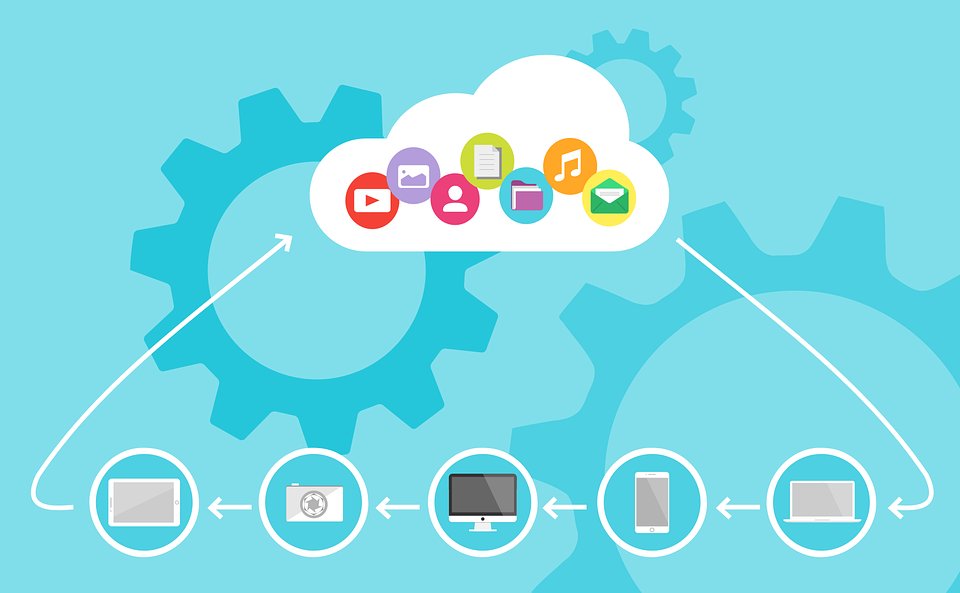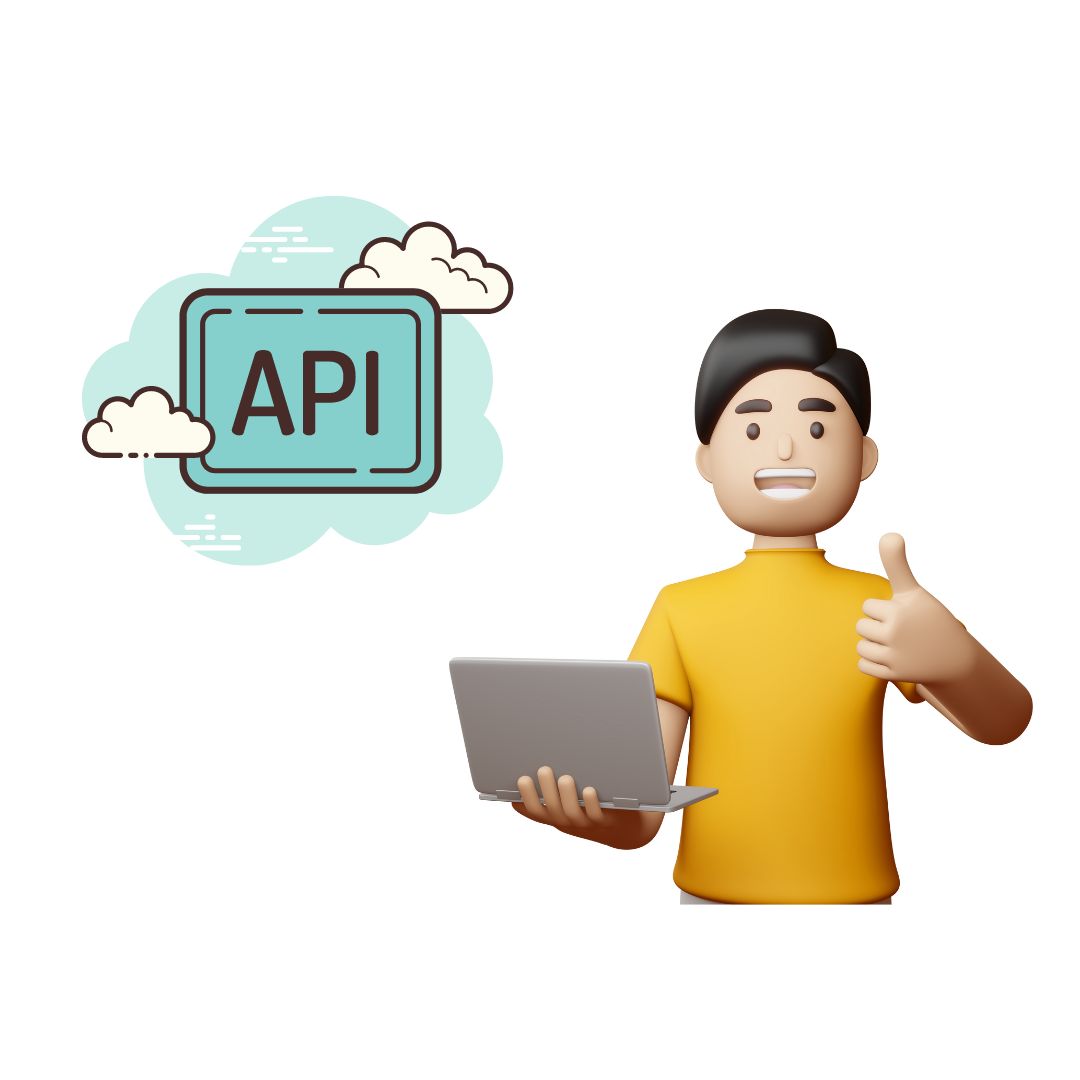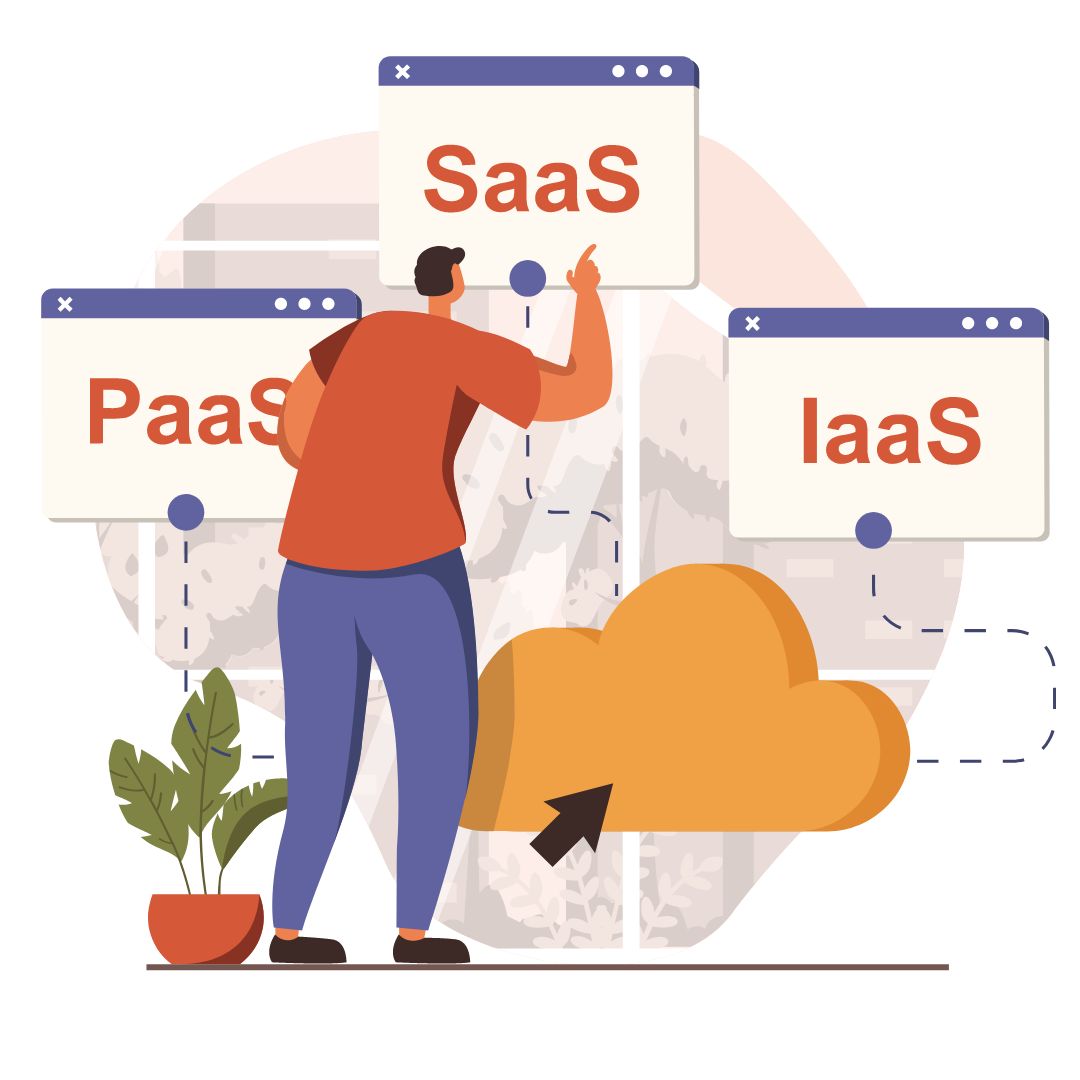
Image Source: WikiMedia Commons
Cloud computing is a term that gets thrown around a lot in the business world. But what does it mean? And more importantly, what can it do for your business?
In this blog post, we will discuss 13 things about cloud computing that you may not have known. We'll cover everything from the basics of cloud computing to its potential benefits for your business.
So if you're curious about cloud computing and want to learn more, read on!
Cloud computing is probably one of the silliest terminologies you will see in the IT world, not only because it's funny to imagine a cloud crunching down numbers using a calculator, but because the term on its own is entirely unrelated to what it means.
Cloud computing is when you store data or run applications on the cloud via the internet instead of your computer's hard drive.
You will not be using your computers, servers, or storage, and you will not be forced to purchase them.
You will have the luxury of using web-based application software and development tools, so you will not need to install anything locally.
The cloud, in essence, is a metaphor for the internet, and cloud computing means using the internet to do things that you would typically do on your computer.
Cloud computing may seem complex, but it's something that we already use in our daily lives.
To simplify the concept of cloud computing, imagine yourself as a T-shirt printing shop owner. Now, you own a heat press machine to get the job done, but your business starts to get more orders around election season, so you need to get more heat press machines to expedite the printing process.
However, you know that it wouldn't be wise to buy more heat press machines since this is just a seasonal demand, so you rent out the heat press machines of other printing shops to deliver your clients' orders.
This is how cloud computing works; you only pay for your use and don't have to keep any physical hardware on-site. You only need an internet connection to rent out what you need for your business to run!
Cloud computing uses remote servers hosted on the internet to store, manage, and process data rather than a local server or a personal computer.
These networks of remote servers are accessed over the internet and utilized by companies depending on their needs.
Cloud computing can be used for various purposes, from storing data to running applications to hosting websites.
Some standard cloud computing services include:
Cloud computing has many practical applications for businesses of all sizes.
Small businesses can use cloud computing services to store data and run applications without investing in on-premise hardware.
Big enterprises and large companies can use cloud computing for complex analytics and disaster recovery tasks.
The possibilities are made endless by cloud computing.

Businesses of all sizes use cloud computing for various purposes. However, if you are a small business still trying to build a solid clientele and set your name in the market, you must consider getting cloud computing services.
For one, small businesses can use cloud-based applications, such as Google Docs and Office 365, to improve collaboration and increase productivity.
These applications are usually much cheaper than traditional office software and can be accessed from any location and device.
When you use cloud-based services, such as Google Docs or Dropbox, you access your data and applications over the internet. This means you can access your data from any location and device, as long as you have an Internet connection.
Cloud computing services are also pay-as-you-go, which means you only pay for the resources you use. This makes cloud computing very cost-effective, as you don't need to invest in your infrastructure.
One of the main benefits of cloud computing is that it can save you money.
You only pay for your resources when you use cloud-based services, which can be much cheaper than buying your hardware and software.
Using cloud computing services also demands less workforce. It makes remote work easy, so you will cut costs since you would not be paying for infrastructure, electricity, or other office-related expenses.
In addition, as stated earlier, cloud computing services are often pay-as-you-go, which means you can scale up or down your resources according to your needs. This makes cloud computing very flexible and cost-effective.
Have you ever struggled with your computers breaking down when your team is in the middle of an important project?
Cloud computing can quickly and successfully solve that problem.
Once you use cloud providers, your data is stored on remote servers, which means that it can be accessed from anywhere, at any time.
This makes cloud computing very reliable as you don't have to worry about losing your data or applications if your computer breaks down.

Data silos are a big problem for businesses, as it makes data challenging to share and integrate.
When data is stored in different formats or locations, it cannot be easy to merge them into a single system.
This can create many problems, such as duplicate data, inconsistency, and errors.
Cloud computing can help you avoid these problems by making it easier to integrate data and applications.
Cloud-based services are often designed to work together, so sharing data and applications between different departments or locations are much more accessible.
This makes cloud computing a potent tool for businesses that need to share data across their organization.
One of the best features of cloud computing could offer excellent disaster recovery capabilities for businesses.
A branch of the system model of cloud computing, the Disaster Recovery as a Service (DRaaS), specifically handles backing up data and cloud infrastructure to restore and regain access when disasters like a power outage or cyberattacks occur.
When you use a cloud computing service, you can expect that whatever the circumstances are, you can readily pull up your files and resume work where you have left it.
There's the old notion that whatever you put out on the internet can be quickly stolen away from you, and most businesses still believe this.
However, contrary to those beliefs, in-office systems are more susceptible to data breaches than cloud systems.
According to the 2019 IBM X-Force Threat Intelligence Index, 43% of data breaches were caused by malicious insiders, while only 18% were due to outside attackers.
This means that businesses are more likely to experience data theft from employees rather than outsider hackers.
With cloud computing services, you can have an added layer of security by encrypting your data.
In addition, cloud providers have strict security measures in place to prevent data breaches.
So if you are worried about the privacy of your data, you can rest assured that it is safe in the cloud.
They say that teamwork makes the dream work, and cloud computing through cloud-based applications has taken this advice to heart.
Since cloud applications are often designed to work together, they make it easy for team members to share data and work on projects.
Examples of cloud-based applications that aid in better collaboration are Google Workspace, Slack, and Microsoft 365.
If you have used them before to work with your colleagues, you can attest to how they make brainstorming and working on projects more accessible and efficient.
These cloud-based applications make it easy for team members to communicate and work on projects.
Another great benefit of cloud computing is that it makes expanding or downsizing your business much more straightforward.
You can add more resources to your cloud account if you need to scale up your business. You don't need to worry about buying new hardware or software, as you can add more resources as you need them.
Say, for example, you are a marketing agency specializing in SEO content, and you use Dropbox to store your files for your clients.
You can easily upgrade your monthly subscription to unlimited storage if you close more deals. However, if some of your clients terminate their contracts with you, you can easily downgrade to their 5TB plan.
Another advantage of cloud computing is that it is fast and easy to deploy. You can set up a cloud account and start using it within minutes.
This is because cloud computing doesn't require installing software or hardware. You only need an Internet connection and can start using cloud-based applications.
The cloud computing industry is expected to grow at a compound annual growth rate of 18% from 2019 to 2025, according to a report by MarketsandMarkets.
The cloud computing market will be worth $623.62 billion by 2025.
With its many benefits and how it helps businesses thrive in their respective industries, it's no wonder cloud computing is here to stay.
Businesses of all sizes are turning to cloud services to improve their productivity and efficiency.
In the digital world, it's either explore the world of cloud computing or be left behind.
So if you haven't started using cloud computing yet, now is the time. You will not regret it!

You might have already come across words like SaaS but don't know what it is. Unbeknownst to many, this is one of the different service model types of cloud services.
To enumerate them and explain them further, cloud services can be classified into four:
Infrastructure as a Service (IaaS): IaaS is the most basic type of cloud service, and it provides you with access to the underlying infrastructure, such as servers, storage, and networking. With IaaS, you can run your applications or use cloud-based applications.
Examples of IaaS:
Platform as a Service (PaaS): PaaS is a cloud platform that allows you to develop, test, and deploy your applications. PaaS providers usually offer various services, such as storage, databases, and messaging systems.
Examples of PaaS:
Software as a Service (SaaS): SaaS is a cloud-based software application that you can use over the Internet. SaaS applications are usually subscription-based and can be accessed from any location and device.
Examples of SaaS:
Database as a Service (DBaaS): DBaaS is a cloud service that provides you with access to a database. DBaaS providers usually offer a range of databases, such as MySQL and SQL Server.
Examples of DBaaS:
A cloud deployment model categorizes cloud services based on how they are provided to customers.
These deployment models are designed to meet a company's needs.
The three main deployment models in cloud computing are public cloud, private cloud, and hybrid cloud.
Public cloud: Public clouds are owned and operated by a third-party service provider, offering their services to the general public over the Internet. All workloads are then run on public infrastructure.
Public cloud services often cost less compared to other deployment models, so this is best for businesses and brands working with a lesser budget.
The only disadvantage with public cloud services is that you will have less control over your data and applications since they are stored off-site.
Private cloud: When one talks about a private cloud, you can already assume that there is a certain exclusivity in it, and there certainly is.
A private cloud is owned and operated by a single organization, giving them more control over their data and applications.
This deployment model is often more expensive than public clouds, but it provides businesses with more security and privacy.
Hybrid cloud: A hybrid cloud combines public and private cloud, where the organizations use both internal and external cloud resources.
By doing so, they get the best of both worlds: the public cloud's cost-effectiveness and the private cloud's security and privacy.
The only challenge with hybrid cloud is that it can be more complex to manage compared to other deployment models.
Cloud computing is one of the fantastic digital advancements that humanity has ever developed.
It has made businesses decrease their operational costs and improve their services, making a remarkable contribution to making everyone's lives more convenient.
Acquiring more knowledge about cloud computing services and how they can help you as an individual or entrepreneur is a step in the right direction.


14 posts | 0 followers
FollowAlibaba Cloud Community - August 5, 2022
Alibaba Clouder - May 20, 2020
Alibaba Clouder - July 26, 2021
Alibaba Clouder - July 30, 2019
digoal - September 17, 2019
Alibaba Cloud_Academy - July 24, 2023

14 posts | 0 followers
Follow Apsara Stack
Apsara Stack
Apsara Stack is a full-stack cloud solution created by Alibaba Cloud for medium- and large-size enterprise-class customers.
Learn More IDaaS
IDaaS
Make identity management a painless experience and eliminate Identity Silos
Learn More DBStack
DBStack
DBStack is an all-in-one database management platform provided by Alibaba Cloud.
Learn More Elastic Desktop Service
Elastic Desktop Service
A convenient and secure cloud-based Desktop-as-a-Service (DaaS) solution
Learn MoreMore Posts by Nick Walter